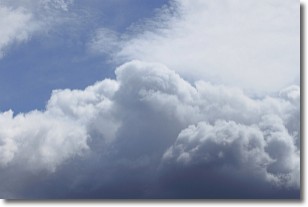Weather Alert in New York
Rip Current Statement issued August 21 at 4:55AM EDT until August 22 at 8:00PM EDT by NWS Upton NY
AREAS AFFECTED: Southern Queens
DESCRIPTION: * WHAT...For the High Rip Current Risk, life-threatening rip currents. For the High Surf Advisory, breaking waves building to 9 to 13 feet through tonight, subsiding to 5 to 9 feet by Friday afternoon. For the Coastal Flood Warning, 2 to 2 1/2 feet of inundation above ground level expected in vulnerable areas near the waterfront and shoreline. For the first and second Coastal Flood Advisories, up to 1 1/2 ft of inundation above ground level expected. * WHERE...Southern Queens County. * WHEN...For the High Surf Advisory, until 8 PM EDT Friday. For the High Rip Current Risk, through Friday evening. For the Coastal Flood Warning, from 5 PM today to 1 AM EDT Friday. For the first Coastal Flood Advisory, from 5 AM to 1 PM EDT Friday. For the second Coastal Flood Advisory, from 6 PM Friday to 2 AM EDT Saturday. * COASTAL FLOOD IMPACTS...Widespread moderate flooding of vulnerable areas near the waterfront and shoreline with this evening's high tide. Expect 2 to 2 1/2 ft of inundation above ground level in low lying, vulnerable areas. This will result in numerous road closures and cause widespread flooding of low lying property including parking lots, parks, lawns and homes/businesses with basements near the waterfront. Vehicles parked in vulnerable areas near the waterfront will likely become flooded. * SWIMMING IMPACTS...Life-threatening swimming and surfing conditions and localized beach erosion. Life-threatening rip currents are likely for all people entering the surf zone. Anyone visiting the beaches should stay out of the surf. Rip currents can sweep even the best swimmers away from shore into deeper water. * SHORELINE IMPACTS...The threat for beach flooding and beach erosion will increase with successive high tides thru Fri morning. Scattered areas of dune erosion are likely during the Thu eve and Fri morning high tides.
INSTRUCTION: Take the necessary actions to protect flood-prone property. If travel is required, do not drive around barricades or through water of unknown depth. Inexperienced swimmers should remain out of the water due to dangerous surf conditions. If you enter the surf zone, always have a flotation device with you and swim near a lifeguard. If caught in a rip current, relax and float, and do not swim against the current. If able, swim in a direction following the shoreline. If unable to escape, face the shore and yell or wave for help.
Want more detail? Get the Complete 7 Day and Night Detailed Forecast!
Current U.S. National Radar--Current
The Current National Weather Radar is shown below with a UTC Time (subtract 5 hours from UTC to get Eastern Time).

National Weather Forecast--Current
The Current National Weather Forecast and National Weather Map are shown below.

National Weather Forecast for Tomorrow
Tomorrow National Weather Forecast and Tomorrow National Weather Map are show below.

North America Water Vapor (Moisture)
This map shows recent moisture content over North America. Bright and colored areas show high moisture (ie, clouds); brown indicates very little moisture present; black indicates no moisture.

Weather Topic: What are Nimbostratus Clouds?
Home - Education - Cloud Types - Nimbostratus Clouds
 Next Topic: Precipitation
Next Topic: Precipitation
A nimbostratus cloud is similar to a stratus cloud in its formless,
smooth appearance. However, a nimbostratus cloud is darker than a stratus cloud,
because it is thicker.
Unlike a stratus cloud, a nimbostratus cloud typically brings with it the threat
of moderate to heavy precipitation. In some cases, the precipitation may evaporate
before reaching the ground, a phenomenon known as virga.
Next Topic: Precipitation
Weather Topic: What is Rain?
Home - Education - Precipitation - Rain
 Next Topic: Shelf Clouds
Next Topic: Shelf Clouds
Precipitation in the form of water droplets is called rain.
Rain generally has a tendency to fall with less intensity over a greater period
of time, and when rainfall is more severe it is usually less sustained.
Rain is the most common form of precipitation and happens with greater frequency
depending on the season and regional influences. Cities have been shown to have
an observable effect on rainfall, due to an effect called the urban heat island.
Compared to upwind, monthly rainfall between twenty and forty miles downwind of
cities is 30% greater.
Next Topic: Shelf Clouds
Current conditions powered by WeatherAPI.com




